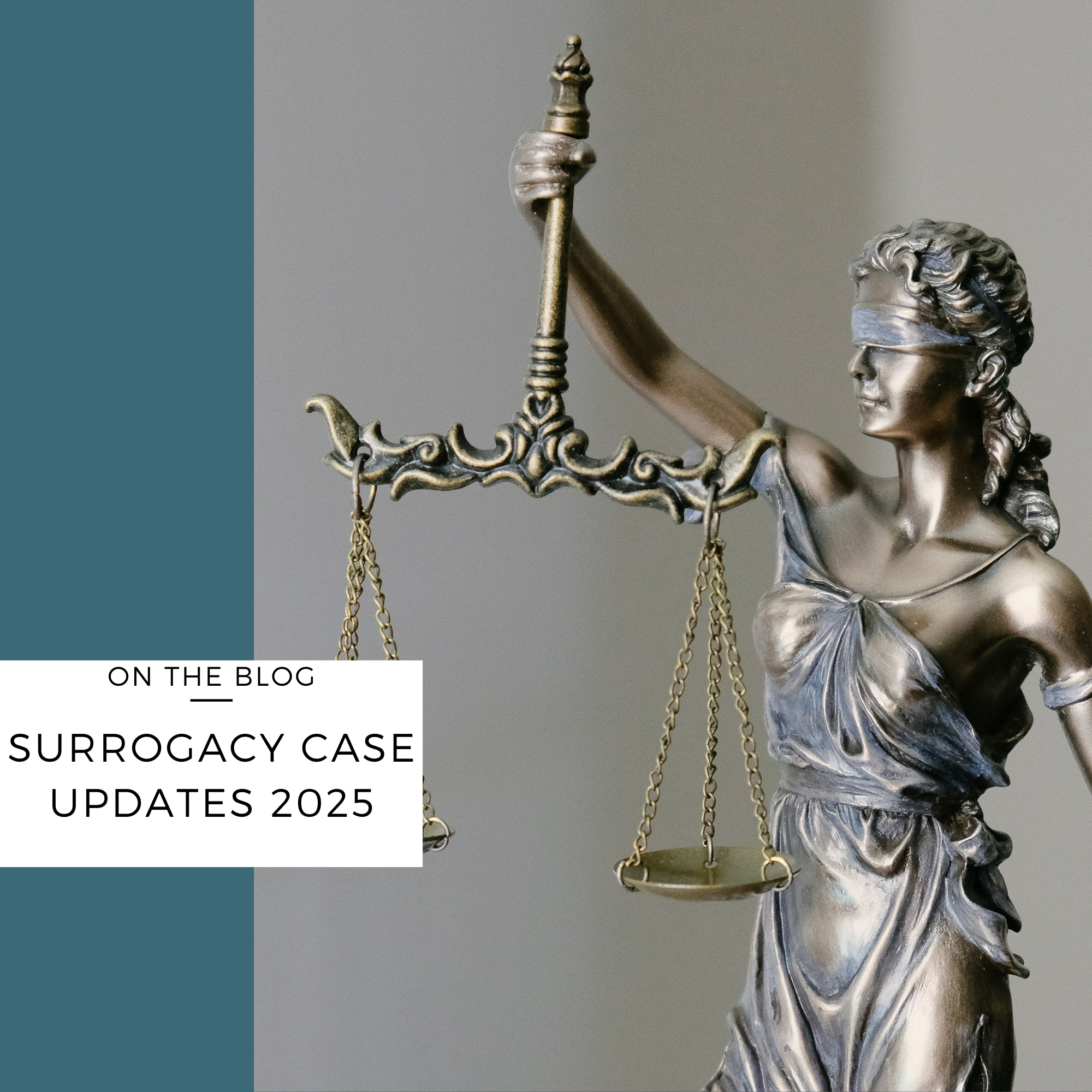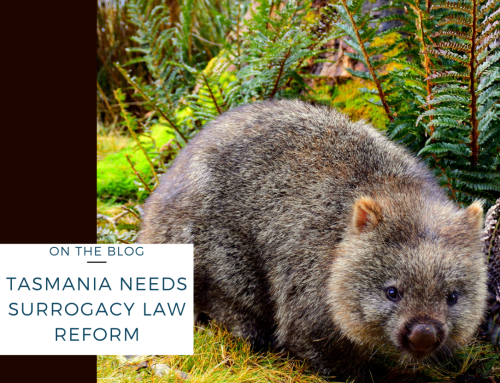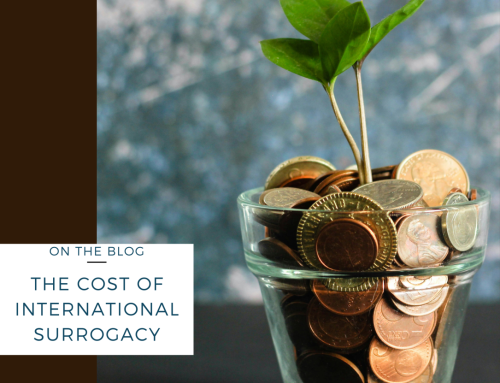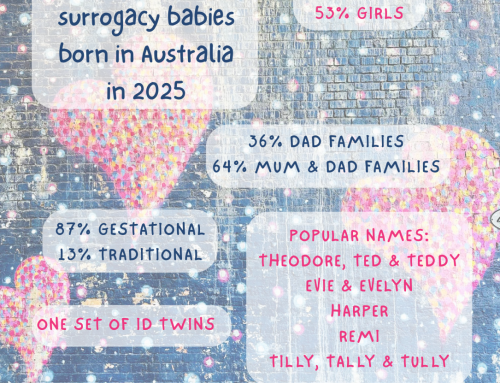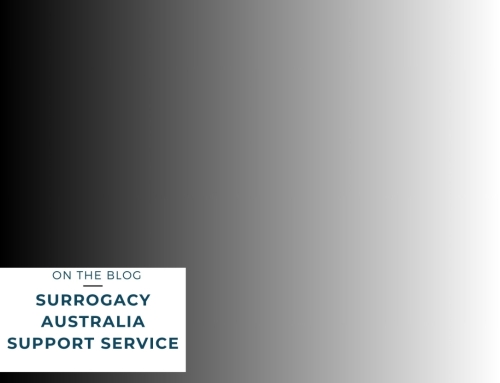Surrogacy Case Updates – 2025
As one of only a few surrogacy lawyers in Australia, it can be difficult to stay on top of case law, particularly without a specific professional practice group. That may change with the inaugural Fertility Law and Ethics conference in October 2025, bringing together fertility and surrogacy legal and counselling practitioners and allied professionals.
Other surrogacy case updates prior to 2025 can be found in this article, and you can read the November 2025 Surrogacy & Fertility Bulletin.
Below are surrogacy, fertility and parentage cases during 2025 that help guide and develop our practice. I keep an eye out for surrogacy case updates on Jade’s database of legislation and caselaw.
Lloyd & Compton [2025] FedCFamC1F 28
Lloyd & Compton was a case involving international commercial surrogacy overseas. There are prohibitions on commercial surrogacy in Australia, and these extend to crimes under Queensland, NSW and ACT laws if the intended parents were resident in any of those states at the time of entering the arrangement. The Lloyds were intended parents resident in Queensland, which means they may have breached the Queensland Surrogacy Act when they entered a commercial surrogacy arrangement overseas.
The Lloyds’ child was born overseas, and for reasons that are not clear, they applied for parenting orders in the Federal Circuit and Family Court in Australia. Their application included sworn affidavits admitting that they had entered a commercial surrogacy arrangement. Their lawyer was later quoted as claiming to have filed ”countless” similar applications but I would query the truth in that statement.
It appears the application fell short of the standard required under the Family Law Act and Court Rules, and Judge Carew found she was not able to make the orders sought, nor did she consider that they were in the child’s best interests. Instead, she referred the intended parents to the Queensland prosecutors for investigation, and referred their lawyer for investigation by the NSW Legal Services Commissioner.
Lessons from Lloyd: unfortunately, again, we can see the results of lawyers practising outside their wheelhouse and risking their clients’ application. We can also see that the prohibition on commercial surrogacy does not prevent it from happening – but it may risk prosecution and what could be considered in the best interests of the children born.
Lloyd’s case was reported widely in the media, including ABC’s World Today. In June 2025, prosecutors announced that no charges would be laid.
.
Re N is a case that illustrates the importance of the counsellors and lawyers working together to ensure everyone is clear on the requirements for a parentage order.
In the NSW Surrogacy Act, there are three parts to counselling:
- Pre-surrogacy counselling pursuant to Section 35(1) of the Act, which involves one counsellor and all the parties. This counselling must occur prior to signing the surrogacy agreement and prior to any pregnancy attempts.
- After the birth, the birth parents attend for relinquishment counselling, pursuant to Section 35(2) of the Act. This can be completed with the same counsellor who provided pre-surrogacy counselling to the team, or a new counsellor.
- Independent counselling, for all parties, as per Section 17 of the Act. This must be with a new counsellor who did not provide the pre-surrogacy counselling, or the relinquishment counselling.
Note that while the same counsellor can provide counselling for parts 1 and 2, anyone who has provided counselling under 1 or 2, cannot provide counselling under part 3.
In Re N, there was some confusion about the post-birth counselling required for parts 2 and 3, and initially both were provided by the one counsellor. On application to the Supreme Court, the Judge raised concerns about whether the counsellor was independent in accordance with Section 17, if he had also provided counselling under Section 35(2). To address the issue, another counsellor then provided counselling under Section 35(2), however His Honour noted that the counsellor who provided the counselling under Section 17 was still not sufficiently ‘independent’ given he had still provided counselling under Section 35(2). The application for parentage order was refused.
Confused? Absolutely, these provisions for counselling can be confusing for the parties. But perhaps if the lawyer for the intended parents had sufficient experience with surrogacy, this problem could have been avoided.
Lessons from Re N: lawyers and counsellors need to work together in ensuring they understand the requirements of the legislation, and are sufficiently experienced in surrogacy and parentage applications.
.
The Monash IVF embryo mix-up
The case that has, and will continue to dominate the news headlines, is that of Monash IVF admitting that they had transferred the wrong embryo, resulting in the birth of a child. The details of the people involved – the birth parents and the genetic parents – have not been revealed. The media frenzy that resulted raised issues of regulation of fertility clinics, as well as issues of parentage, genetic identity and best interests of the child.
This is the only case of an embryo ‘mix-up’ in Australia, that we are aware of. There have been other cases internationally, including in Israel, and in the United States. The impact on the genetic and birth parents will be complex and challenging, and on the child it will be lifelong.
So who is a parent in these circumstances? Our laws presume that someone giving birth is a legal parent to a child, notwithstanding any genetic connection they have or otherwise. In that case, the birth parents would likely be recognised as the legal parents of the child.
A donor is not a parent, if they have consented to someone using their genetic material to become a parent. However, we do not have precedent for a case where the genetic ‘donors’ did not consent to the use of their embryo. A parenting case might lead to a relationship between the child and their genetic parents, but I would expect the birth parents would remain the legal parents of the child.
The case has raised anxiety for people seeking treatment at fertility clinics across Australia. My advice to anyone with concerns, is to speak to your fertility doctor about the clinic protocols for ensuring the right gametes are used in treatment.
.
Victorian case of child-free surrogate
Most states in Australia do not require a surrogate to have had children before becoming a surrogate. A surrogate who is child-free is not uncommon. However, in Victoria, it is a requirement for gestational surrogacy that the Patient Review Panel must approve the arrangement prior to treatment. The Patient Review Panel, as a default, cannot approve an arrangement involving a surrogate who has not previously given birth to a live child, unless there are exceptional circumstances.
In effect, surrogacy arrangements with a child-free surrogate will consider alternative options, or not proceed with the arrangement for fear that they will be refused by the Patient Review Panel. However, I recently had clients who were determined to proceed with the arrangement with their equally determined surrogate, who had not previously given birth. They completed the process, and applied to the Patient Review Panel. In good news, they were approved and can now proceed with treatment.
While the case is positive and encouraging, of itself it cannot be used as a precedent for other cases. The Patient Review Panel will consider each application on their own merits, and will not necessarily be swayed by decisions in other cases.
Note that traditional surrogacy arrangements in Victoria do not require Patient Review Panel approval and do not require a surrogate to have had her own child.
.
And in other news, the Secrets We Keep produced a podcast series, By Any Means, exploring the best and worst of surrogacy in Australia and overseas, interviewing surrogates at our Sisterhood Retreat, a surrogate and industry professionals and a surrogate in Colombia, and Sam Everingham of Growing Families. The podcast series is enlightening, and industry professionals should take time to listen, particularly to episodes 5 and 6.
Further surrogacy case updates will be posted here over the course of the year.
The Australian Law Reform Commission is currently reviewing Australia’s surrogacy laws. You can stay up to date with the review and make a submission.
.
Sarah has published a book, More Than Just a Baby: A Guide to Surrogacy for Intended Parents and Surrogates, the only guide to surrogacy in Australia.
You can read a broad overview for surrogacy in Australia and how it works.
You can find more information in the free Surrogacy Handbook, reading articles in the Blog, by listening to more episodes of the Surrogacy Podcast. You can also book in for a consult with me below, and check out the legal services I provide.

